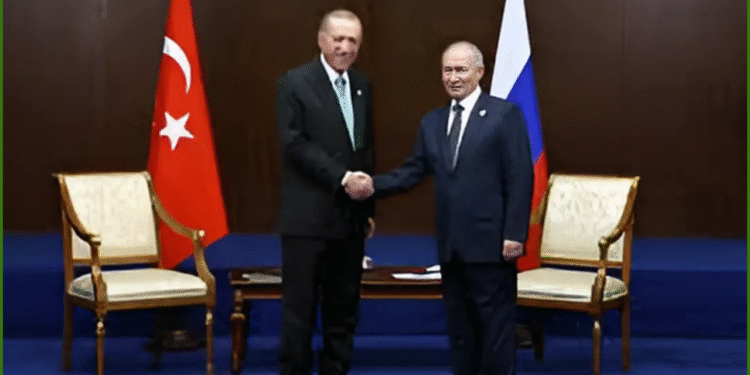In a rare moment of direct diplomacy, Russian and Ukrainian negotiators met face-to-face in Istanbul’s historic Dolmabahce Palace on May 16, 2025, marking their first formal talks in over three years. Hosted by Türkiye and overseen by Turkish Foreign Minister Hakan Fidan, the meeting aimed to chart a course toward ending the ongoing conflict but concluded without a ceasefire agreement after less than two hours.
Despite the lack of progress on broader peace terms, the delegations achieved a significant milestone: a landmark agreement to exchange 1,000 prisoners of war from each side, the largest such swap since the war erupted in 2022. The deal offers a glimmer of hope amid entrenched divisions, with both sides committing to finalize the logistics in the coming weeks.
Ukrainian negotiator Rustem Umerov emphasized that freeing captives and securing a ceasefire were Kyiv’s top priorities. He proposed a follow-up summit between Ukrainian President Volodymyr Zelenskyy and Russian President Vladimir Putin to build on the prisoner exchange. Russia’s lead delegate, Vladimir Medinsky, acknowledged the agreement and said both parties would present detailed ceasefire proposals, though he remained vague on timelines for a potential leaders’ meeting.
The talks exposed deep rifts. A Ukrainian official, speaking off the record, dismissed Russia’s demands—reportedly including territorial concessions by Kyiv—as “unrealistic and obstructive.” Russian negotiators, in turn, framed the Istanbul meeting as a revival of 2022 discussions, where Moscow sought guarantees of Ukrainian neutrality and military downsizing.
Turkish Foreign Minister Fidan, acting as mediator, urged both sides to choose between “a road to peace or a path to further devastation.” The delegations’ appearances underscored their contrasting realities: Russian officials arrived in sharp suits, while many Ukrainians wore combat fatigues, a visual reminder of the war’s toll.
The talks come amid growing international calls for de-escalation, with former U.S. President Donald Trump reportedly pressing both nations to find common ground. Analysts suggest Trump’s influence may have helped secure the prisoner swap, but core disputes persist. Ukraine is advocating for a 30-day truce to halt hostilities, while Russia insists on long-term talks addressing Ukraine’s geopolitical alignment.
From Tirana, Albania, President Zelenskyy reaffirmed his push for a “complete and genuine ceasefire” as the foundation for lasting peace. He cautioned that failure to reach an accord should trigger tougher global sanctions on Russia’s energy and banking sectors.
With President Putin absent from the talks and Trump hinting that a ceasefire hinges on his personal involvement, the path to peace remains uncertain. For now, the prisoner exchange stands as a rare point of agreement in a conflict that continues to defy resolution.

















































